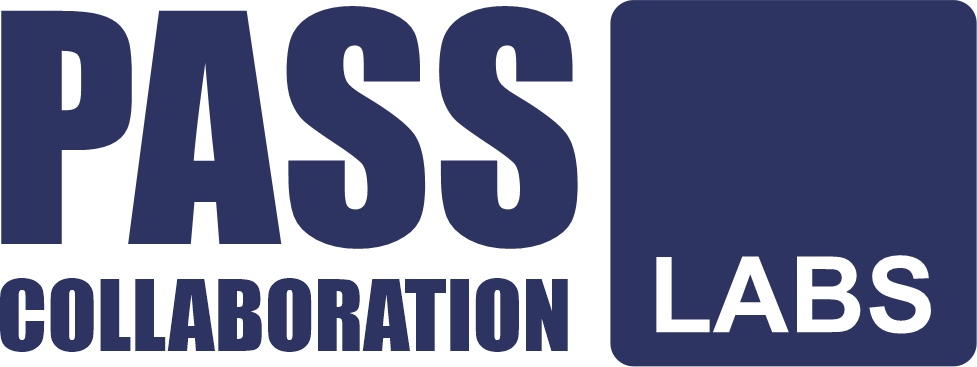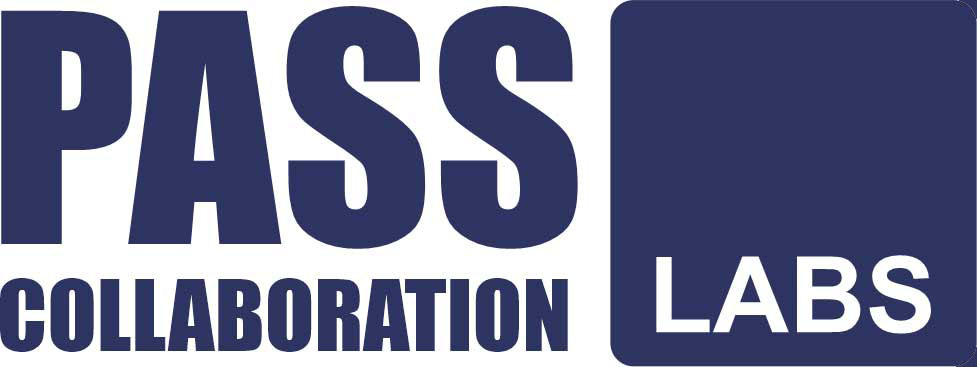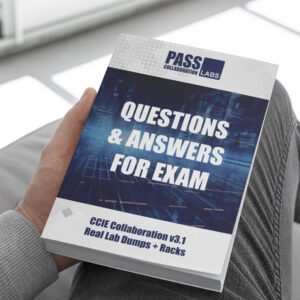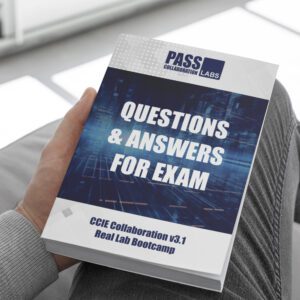CCIE Collaboration v3.1 Real Lab Dumps
At Pass Collaboration Labs we believe our success is measured by our customers’ success so we are always focused on CCIE Collaboration Real Lab Workbook study materials make business sense for our customers. This has helped us become more than a vendor, we are a trusted advisor and partner. Only authentic source in the international market who provide valid CCIE Collaboration v3.1 Real Lab Workbook. With 99% success rate in passing students and money back guarantee program makes us top leader in market. Network engineers and professional can upgrade themselves with CCIE Certification and pass exam in first attempt. Latest and updated CCIE Collaboration Real Lab Workbook, only for you @ lowest price with passing guarantee.
$1500
Description
Includes:
– CLCOR 350-801 Written Workbook FREE
– 7 Days Update (Written) FREE
– Module1 : Design (Questions and Solutions)
– Module2 : Deploy, Operate and Optimize Module (Questions and Solutions)
– 120 Days Update (Labs)
– 120 Days Technical Support (Labs) via Chat and Email
Buy CCIE Collaboration v3.1 Real Lab Workbook
Pass CCIE Collaboration Real Lab with Passcollaborationlabs.
Our 100% authentic and reliable CCIE Collaboration v3.1 Real Lab Workbook is designed to boost your preparation and pass the CCIE Collaboration Real Lab.
It covers all essential topics and intricacies of the CCIE Collaboration v3.1 Real Lab Workbook and our dumps provide a comprehensive overview that mirrors the actual exam structure.
Each question is thoroughly researched and verified by seasoned professionals with proper accuracy and relevance to the syllabus of CCIE Collaboration v3.1 Real Lab Workbook .
Our dumps mirror the actual exam environment, allowing you to familiarize yourself with the format, pacing, and difficulty level of the questions.
With our CCIE Collaboration v3.1 Real Lab Workbook, you can rest assured that you are equipped with the most comprehensive and reliable study material available in the market that will definitely make you pass the exam with a 100% guarantee.
CCIE Collaboration v3.1 Lab: Latest Passouts
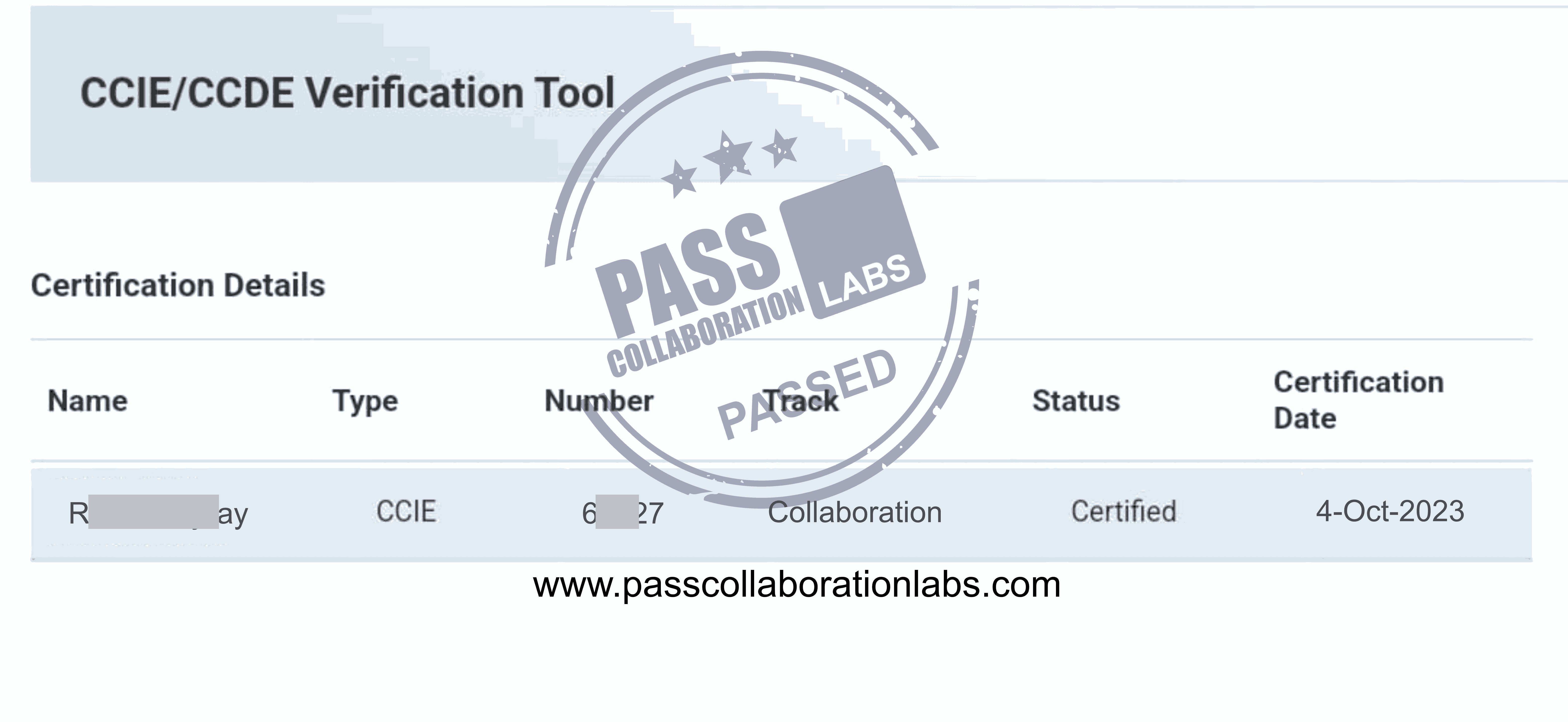
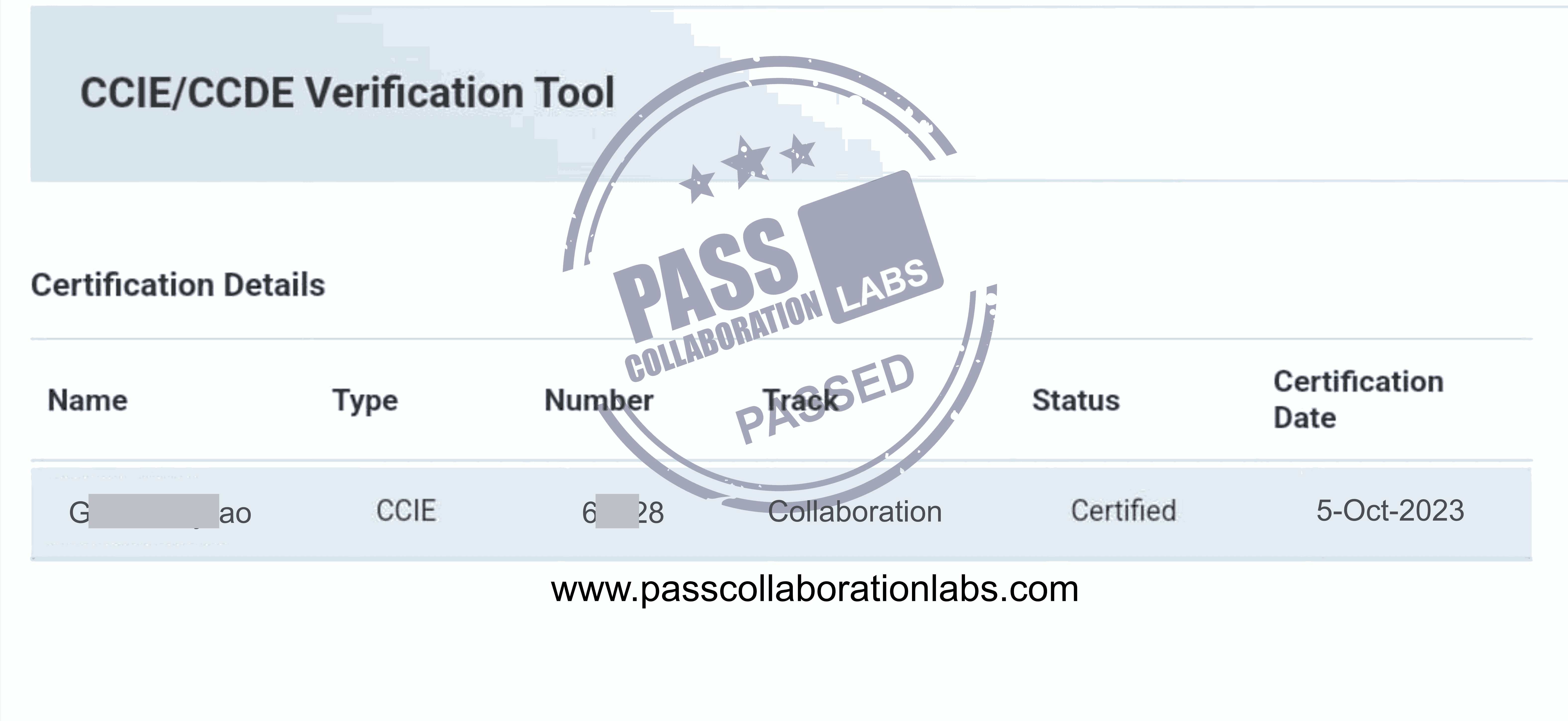
Introduction to CCIE Collaboration v3.1 Real Lab Dumps Questions And Answers
The CCIE Collaboration v3.1 Real Lab Dumps Questions And Answers is one of the most sought-after credentials for network engineers specializing in collaboration technologies. Achieving this certification requires passing a rigorous lab exam, which tests candidates’ ability to design, deploy, and troubleshoot complex collaboration solutions in a real-world environment. The latest version, CCIE Collaboration v3.1, reflects the continuous advancements in collaboration technologies, making it essential for candidates to stay updated and well-prepared. Real lab dumps play a crucial role in this preparation, offering a practical and comprehensive way to understand and master the exam content.
Understanding the CCIE Collaboration Lab Exam
The CCIE Collaboration lab exam is an eight-hour, hands-on test that assesses candidates on various aspects of collaboration technologies. It is designed to validate both theoretical knowledge and practical skills. Key components of the lab exam include:
- Collaboration Infrastructure: Involves configuring and managing the underlying infrastructure supporting collaboration solutions.
- Protocols and Codecs: Focuses on the communication protocols and codecs essential for collaboration.
- Security and Encryption: Ensures that candidates can implement robust security measures to protect collaboration environments.
- Automation and Programmability: Tests the ability to use automation tools and scripts to streamline and optimize collaboration systems.
Advantages of Using Real Lab Dumps
Real lab dumps offer numerous benefits for CCIE Collaboration candidates:
- Comprehensive Preparation: They provide a wide range of scenarios and tasks that closely mimic the actual lab exam.
- Practical Skills Enhancement: By working through real lab dumps, candidates can develop and hone the practical skills needed for the exam.
- Time Management: Familiarity with the types of tasks and scenarios helps candidates manage their time effectively during the exam.
Detailed Guide to Lab Exam Topics
Understanding the core topics covered in the lab exam is crucial for effective preparation. Here’s a detailed breakdown:
- Collaboration Infrastructure: This includes configuring Cisco Unified Communications Manager, Cisco Unity Connection, and other essential components.
- Protocols and Codecs: Detailed knowledge of SIP, H.323, and other communication protocols, as well as various audio and video codecs.
- Security and Encryption: Implementing and managing security measures to ensure the integrity and confidentiality of collaboration solutions.
- Automation and Programmability: Using APIs, scripts, and tools to automate and optimize collaboration systems.
Effective Lab Exam Strategies
Preparing for the lab exam requires a strategic approach. Here are some tips:
- Setting Up a Home Lab: Invest in or simulate a lab environment that mirrors the actual exam setup.
- Utilizing Real Lab Dumps: Integrate real lab dumps into your study routine to get hands-on practice with real-world scenarios.
- Simulating Exam Environment: Regularly simulate the exam environment to become comfortable with the time constraints and pressure.
Navigating Real Lab Dumps
Using real lab dumps effectively can make a significant difference in your preparation. Here’s how to navigate them:
- Types of Lab Tasks: Understand the different types of tasks included in the lab dumps, such as configuration, troubleshooting, and optimization.
- How to Use Lab Dumps Effectively: Focus on understanding the rationale behind each task and solution rather than just memorizing steps.
- Common Mistakes to Avoid: Avoid over-reliance on lab dumps and ensure you have a comprehensive understanding of the material.
In-Depth Topic Breakdown
To excel in the lab exam, you need a deep understanding of various topics:
- Cisco Unified Communications Manager: Master the configuration and management of CUCM.
- Cisco Unity Connection: Gain proficiency in setting up and troubleshooting Cisco Unity Connection.
- Collaboration Endpoints: Learn how to configure and manage various collaboration endpoints.
- Quality of Service (QoS): Understand QoS mechanisms to ensure high-quality collaboration experiences.
Real-World Application of Lab Skills
The skills gained from preparing for the CCIE Collaboration v3.1 Real Lab Dumps Questions And Answers are not just theoretical but highly applicable in real-world scenarios:
- Implementing Collaboration Solutions: Learn how to design and deploy collaboration systems in various environments.
- Troubleshooting Techniques: Gain insights into troubleshooting common issues in collaboration networks.
- Optimizing Performance: Develop strategies for optimizing the performance of collaboration solutions.
Success Stories from Pass Collaboration Labs
At Pass Collaboration Labs, we pride ourselves on the success of our candidates. Here are some testimonials:
- Testimonials: Hear from our successful candidates who have aced the CCIE Collaboration lab exam using our resources.
- Case Studies: Explore detailed case studies of how our real lab dumps and study materials have helped candidates achieve their certification goals.
- Success Rates: Our high success rates speak volumes about the effectiveness of our real lab dumps.
Preparing for the Lab Exam Day
As the lab exam day approaches, it’s essential to be well-prepared:
- Last-Minute Tips: Review key concepts and take a few practice labs to boost your confidence.
- What to Bring: Ensure you have all necessary materials, including identification and any allowed resources.
- Managing Exam Day Stress: Stay calm and focused, and manage your time effectively during the exam.
FAQ. Frequently Asked Question
What is the best way to use real lab dumps?
- Supplemental Tool: Use lab dumps to supplement your primary study and lab practice. They can help you understand the format and types of tasks you may encounter.
- Practice and Verify: Practice the tasks provided in the dumps, but verify their accuracy and relevance against trusted study guides and official documentation.
- Skill Enhancement: Focus on understanding the underlying concepts and processes, rather than just memorizing steps.
- Avoid Dependence: Do not rely solely on lab dumps, as this can lead to a superficial understanding and gaps in knowledge.
How often should I practice lab scenarios?
- Consistent Practice: Aim to practice lab scenarios regularly, such as several times a week.
- Incremental Difficulty: Start with simpler scenarios and gradually increase the complexity as you become more comfortable.
- Full Labs: Periodically practice full lab scenarios under exam conditions to build stamina and time management skills.
- Post-Topic Review: After studying a specific topic, practice related lab scenarios to reinforce learning.
Are there any specific lab tasks I should focus more on?
- Core Tasks: Focus on tasks that are fundamental to the exam’s objectives and core to the subject matter.
- Frequently Tested Areas: Identify and practice tasks that are commonly tested or highlighted in the exam blueprint.
- Weak Areas: Prioritize tasks you find challenging or have struggled with in previous practice sessions.
- Real-World Relevance: Emphasize tasks that have practical applications and are likely to be relevant in real-world scenarios.
How do I manage time during the lab exam?
- Task Prioritization: Quickly review all tasks at the start and prioritize based on your strengths and the points they carry.
- Time Allocation: Allocate specific time blocks for each task and stick to them as closely as possible.
- Checkpoint Reviews: Periodically check your progress and adjust your pace as needed to ensure all tasks are addressed.
- Stay Calm: Maintain a calm and focused mindset to avoid rushing through tasks and making errors.
What are the common pitfalls to avoid during preparation?
- Over-Reliance on Dumps: Avoid depending too much on lab dumps. They should complement, not replace, your study and practice.
- Neglecting Fundamentals: Don’t skip basic tasks or fundamental concepts; they are crucial for understanding more advanced scenarios.
- Inconsistent Practice: Ensure regular and consistent practice rather than sporadic, last-minute cramming.
- Ignoring Weak Areas: Address and practice your weak areas instead of only focusing on your strengths.
- Burnout: Balance study and practice with breaks to avoid burnout and maintain high productivity levels.

